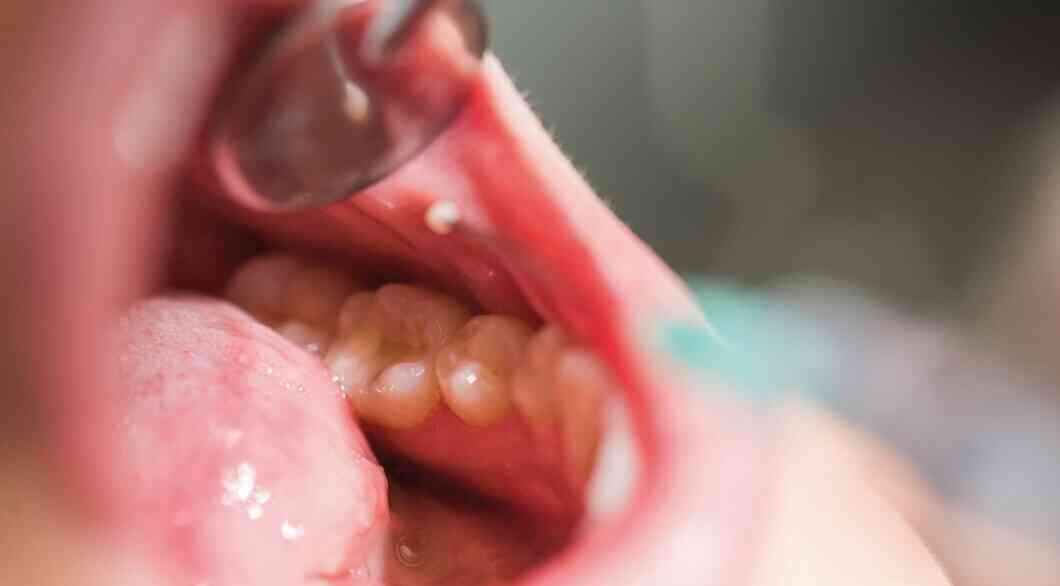Oral Cancers
Oral cancer develops when cancer cells begin growing out of control in the mouth, which includes the lips, the inside lining of the lips and cheeks, the teeth, the gums, most of the tongue, the bottom of the mouth, and the bony roof of the mouth, or hard palate.
More than 90 percent of oral cancers are squamous cell carcinomas, meaning they form in the flat, thin squamous cells that line the mouth and throat.

Risks Associated With Oral Cancer
The important risk factor for developing oral cancer is using tobacco products. This includes cigarettes, cigars, pipes, chewing tobacco, and snuff. Alcohol use is also a risk factor for developing oral cancer. People who both smoke and drink alcohol have a much higher risk of developing oral cancer than people who only use one of these products.
Other Risk Factors For Oral Cancer
- Exposure to the human papillomavirus (HPV) HPV is a group of viruses that can infect the mouth, throat, and genitals. HPV is the main cause of cervical cancer in women. Some types of HPV are linked to an increased risk of developing oral cancer.
- A history of sun exposure People who have a lot of sun exposure are at higher risk for developing lip cancer.
- A weakened immune system People with HIV/AIDS or other conditions that weaken the immune system are at higher risk for developing oral cancer.
Signs And Symptoms Of Oral Cancer
The common symptom of oral cancer is a sore or lump in the mouth that does not go away. Other symptoms include:
- Pain in the mouth or jaw
- Difficulty swallowing
- A hoarse voice
- Ear pain
- A change in the way your teeth fit together when you bite
If you have any of these symptoms, it is important to see a dentist or doctor right away. These symptoms can also be caused by other conditions, but only a dentist or doctor can determine if you have oral cancer.
Prevention
Avoid the risk factors. Increase antioxidant vitamin intake (Vitamin, A, C & E). Consume tomato. Do not use alcohol based mouthwashes regularly. Periodic annual check up.
Oral Cancer Treatment
- Surgery
- Radiotherapy
- Chemotherapy
- Combination of radiotherapy and chemotherapy
Oral cancer may be treated with one therapy or a combination of therapies, depending on where the cancer started and whether the disease has advanced. Surgery is often used to treat oral cancer that hasn’t spread. Surgery also is commonly used to treat advanced-stage and recurrent cancers, often in combination with radiation therapy, chemotherapy and/or targeted therapy.
Complications of oral cancer:
If oral cancer is not diagnosed and treated earlier, it can lead to death of the individual. Besides this, the late treatment of the advanced lesion can cause more tissue damage and hence greater part of the tissue has to be removed in surgery which can lead to loss of oral and facial tissues such as tongue and jaw. Furthermore, the cancer can spread to other areas in body causing more difficulty in removal and increase in recurrence of the cancer.
The radiotherapy and chemotherapy have also their associated side effects e.g. soreness of mouth, ulcerations, increase in tooth decay, delayed wound healing, decrease in amount of saliva, difficulty in opening mouth, difficulty in swallowing, increased infection rate and change in perception of taste.
FAQ’S
Are oral cancers curable?
If oral cancer is discovered early, the cure rate is nearly 90%. If, however, the cancer has already spread before diagnosis, the survival rate is 60% after five years of treatment. The best outcome for oral cancer is always early diagnosis and treatment.
How is oral cancer typically diagnosed?
A doctor or dentist may find some cancers or pre-cancers of the mouth during an exam, but most oral cancers are detected after the patient experiences signs or symptoms. Diagnosing oral cancer may involve a physical exam, including a complete head and neck exam, biopsy and imaging tests. Sometimes, blood tests and/or a dental exam are performed, as well.
How is oral cancer typically treated?
Oral cancer may be treated with one therapy or a combination of therapies, depending on where the cancer started and whether the disease has advanced. Surgery is often used to treat oral cancer that hasn’t spread. Surgery also is commonly used to treat advanced-stage and recurrent cancers, often in combination with radiation therapy, chemotherapy and/or targeted therapy
